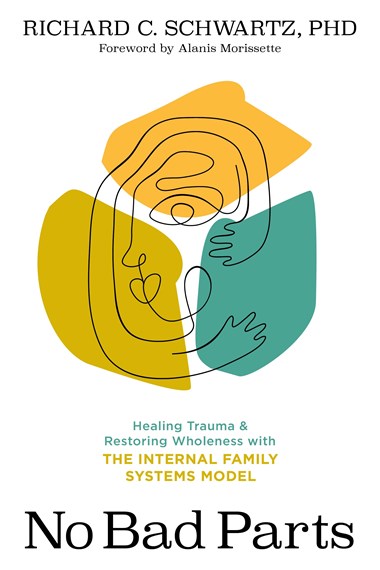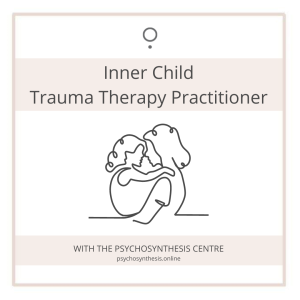
Is there some part of yourself that you wish would go away? Most of us would say yes, whether we call it addiction, the inner critic, monkey mind, neurosis, sinfulness, bad habits, or some other disparaging name. Yet what if there were a different way to approach these aspects of yourself that leads to true healing instead of constant inner struggle?
In “No Bad Parts,” Richard Schwartz, the developer of Internal Family Systems (IFS), takes readers on a journey of self-discovery and true healing.
An Invitation to Embrace Our Inner Landscape
Drawing upon his extensive experience as a therapist and the foundational principles of IFS, Schwartz introduces a transformative approach to understanding and embracing the various parts of ourselves. With compassion and wisdom, he guides us toward a place of self-acceptance and wholeness. This book is an exploration of the human psyche, offering invaluable insights for personal growth and transformation.
As readers delve into the pages of “No Bad Parts,” those who have experienced psychosynthesis psychotherapy will find a sense of familiarity, recognising the underlying principles of psychosynthesis. The concept of the Self, the exploration of inner parts, and the cultivation of self-compassion are intricately woven throughout the book, emphasising the shared essence of these transformative models.
The Power of Internal Family Systems
At the heart of “No Bad Parts” lies the transformative power of Internal Family Systems. Schwartz introduces the concept of parts as distinct aspects of our psyche, each with its unique thoughts, emotions, and beliefs. He emphasises the importance of cultivating a relationship with our parts, engaging in compassionate dialogue, and understanding their underlying motivations. Through this process, we can uncover the true essence of our being and foster profound healing and growth.
Compassionately Navigating Inner Conflicts
Drawing upon the principles of Psychosynthesis and IFS, Schwartz encourages us to embody the role of the compassionate and curious Self—the core essence within us—to facilitate healing and harmony among our parts. By approaching our inner conflicts with compassion and understanding, we can transform them into opportunities for self-discovery and integration.
Case Studies and Practical Exercises
To illustrate the transformative power of Internal Family Systems, Schwartz shares case studies from his therapeutic practice. These real-life examples showcase the effectiveness of the IFS model in addressing a wide range of issues, including trauma, anxiety, and relationship challenges. Additionally, “No Bad Parts” provides practical exercises and techniques that readers can apply in their own self-exploration and healing journey. These exercises empower readers to engage with their parts, cultivate self-compassion, and nurture their inner dialogue.
The Importance of Self-Leadership
A fundamental Psychosynthesis concept emphasised throughout the book is the notion of Self-leadership. Schwartz highlights the significance of accessing and strengthening our Self—the core, unifying aspect of our being. The Self embodies qualities such as compassion, curiosity, and wisdom, serving as the guiding force in our journey towards wholeness. Through Self-leadership, we can become the compassionate and empowering presence that integrates and harmonises our parts.
A Roadmap to Personal Growth and Transformation
“No Bad Parts” is more than a book; it is a roadmap to personal growth and transformation. Richard Schwartz’s insightful approach invites readers to embark on a journey of self-discovery, acceptance, and healing. The principles and techniques of IFS presented in the book offer practical tools for individuals seeking to understand their inner world, navigate conflicts, and cultivate self-compassion.
No Bad Parts is a Valuable Resource for Healing Trauma
“No Bad Parts” is a truly transformative book that explores the depths of our inner landscape, inviting us to embrace the wholeness of our being. Richard Schwartz’s wisdom, compassion, and expertise shine through as he guides us on a journey of self-discovery through the lens of Internal Family Systems. By challenging the notion of “bad parts” and embracing each aspect of ourselves with compassion, we can embark on a path of healing, integration, and personal growth. This book is a valuable resource for anyone seeking to cultivate a deeper understanding of themselves and unlock their true potential.
If you are ready to explore your Inner Child, join my mailing list to be notified of my upcoming Inner Child workshop for Trauma Warriors.
If you are a therapist ready to train in Inner Child Therapy, you can read more about my training for professionals at Psychosynthesis.Online.

